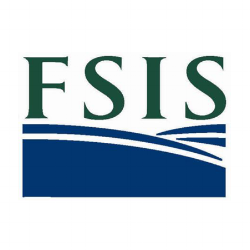American veal is a safe and nutritious meat you can enjoy with confidence! The American veal industry excels in food safety using proven technologies, biosecurity practices, third-party audits and employee training. We also have a commitment to continuous improvement and adopting practices that protect food safety on our farms and in our processing facilities.
Follow these recommendations for purchasing and preparing veal.
When Buying:
Choose meat that’s cold to the touch and well-wrapped.
Pick it up last before checking out to keep it cold.
Use a separate bag to prevent meat juices from touching other groceries.
At Home:
Refrigerate meat within 2 hours (1 hour if it’s above 90°F outside).
Store meat in the coldest part of your fridge (below 40°F).
Use within 3–5 days, or freeze if you won’t cook it soon.
Keep meat in its original packaging or place in a leak-proof container to avoid cross-contamination.
When Cooking:
For the best flavor, tenderness, and juiciness, cook most veal cuts to medium doneness (160°F).
Avoid overcooking—an instant-read thermometer is the most reliable way to check for perfect doneness.
If you don’t have a thermometer, make a small slit near the bone or the center of a boneless cut. Veal cooked to medium will be light pink in the center.
For braised or stewed veal, cook just until the meat is fork-tender—not longer.
Tips to Avoid Overcooking:
High heat can dry out veal or burn the outside before the center is done.
Use gentle, controlled heat for best results.
Here are some additional ways meat – including American veal – is regulated to ensure safety.
Animal Health Care Products (AHCP) are used judiciously to protect human and animal health.
Animal health care products (AHCP) – including antibiotics – are essential tools for maintaining animal health and preventing disease. Their use is strictly regulated. Antibiotics are only approved to treat disease and must be used under the supervision of a veterinarian in accordance with the Food and Drug Administration (FDA) regulations for human and food safety.
AHCP may only be used therapeutically for the treatment of sick animals and only under the supervision of a veterinarian. In addition, hormone implants are never used in veal cattle. Veal producers follow the Veal Quality Assurance program, a science-based program that includes guidelines for AHCP use.
All animals are inspected before harvest.
Veal producers have an ethical commitment to ensure only healthy animals are delivered to processing or packing plants. Current regulations appropriately stipulate that only healthy animals able to walk can be slaughtered.
USDA Food Safety and Inspection Service
Once animals leave the farm, they are inspected by either a federal or state agency throughout each step of the production process to ensure food safety. All state and federal meat inspection is overseen by the United States Department of Agriculture's (USDA) Food Safety Inspection Service (FSIS), which regulates food safety standards for raw meat. FSIS inspectors work within meat processing and packing plants to ensure compliance. Only meat that meets FSIS standards for safety, wholesomeness and labeling is given a USDA seal. Animals are inspected twice by the USDA before processing. Federally inspected meat plants are subject to the Humane Slaughter Act, which is enforced by USDA inspectors who are in meat packing plants during every minute of operation. If tests produce any questionable results, then the meat never reaches the food supply.




